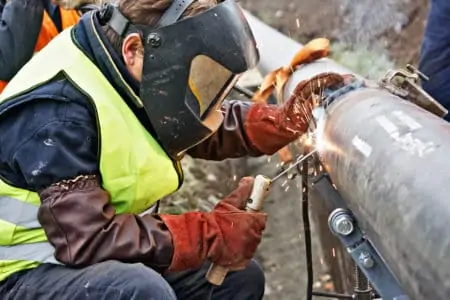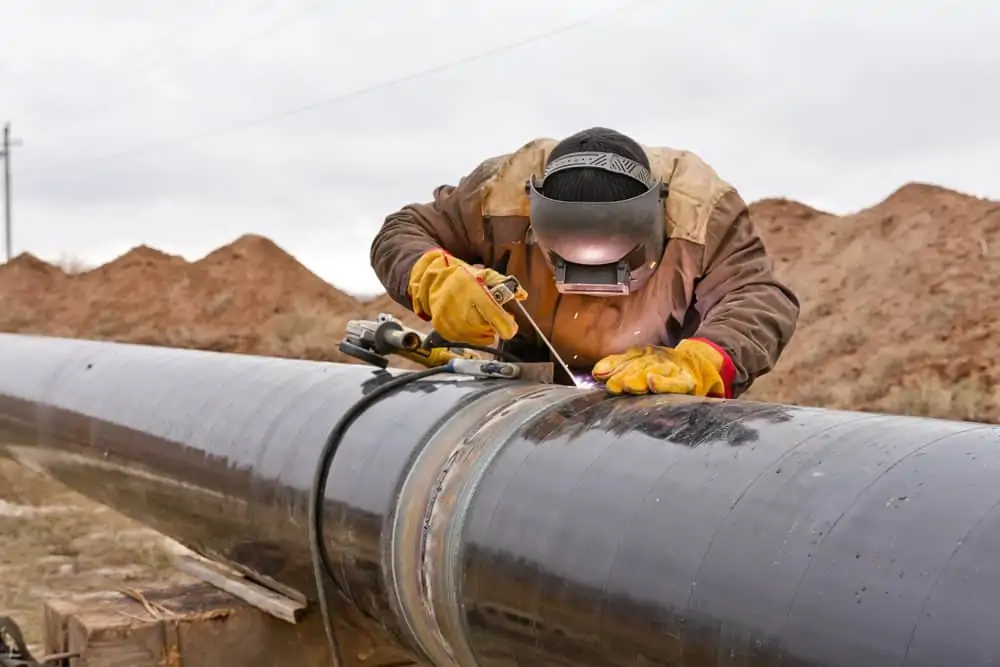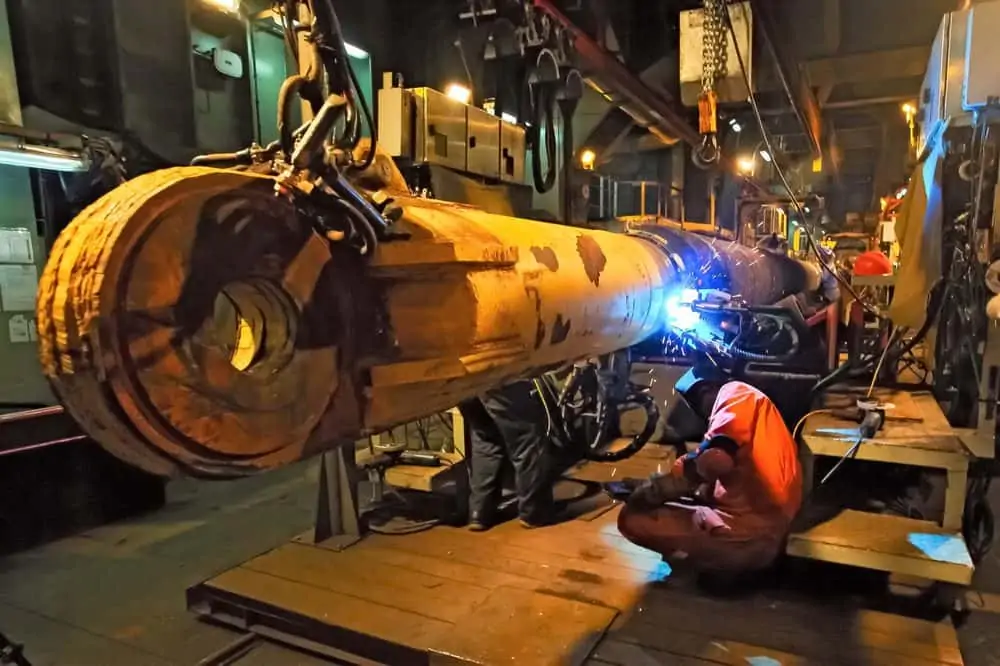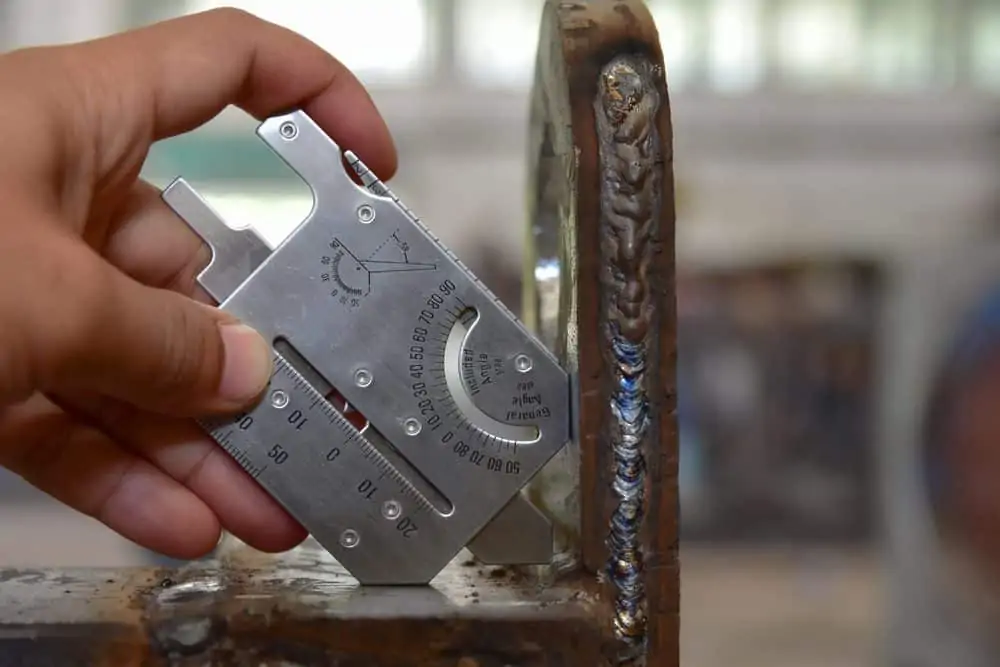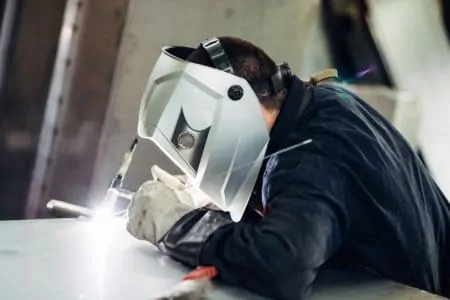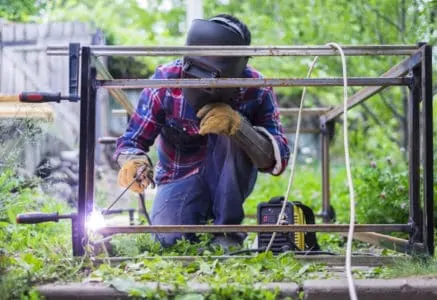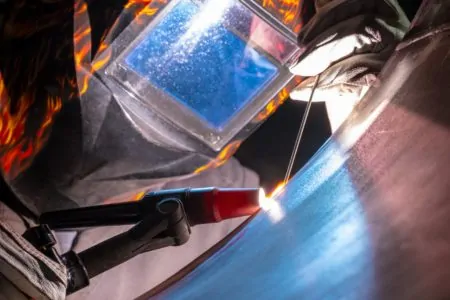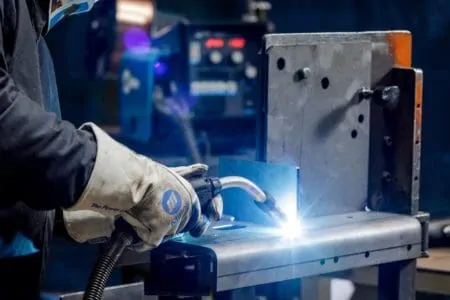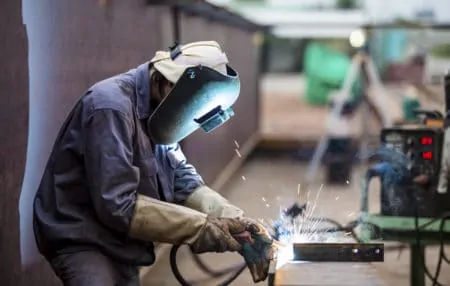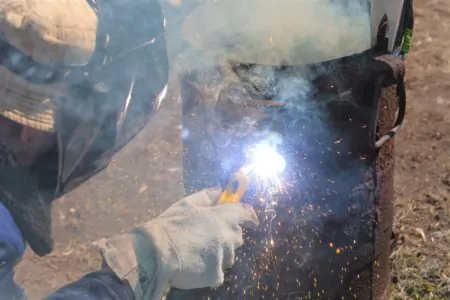Is welding a good career? That is the question. Ask any welder, and they’ll tell you it has its ups and downs. But the majority would also tell you that they couldn’t envisage doing anything else.
We answer the question “Is welding a good career?” and look at which welder jobs rank as the best.
Key Takeaways
- Welding is a high-demand career with good pay and rapid advancement opportunities.
- Welders perform various tasks, including joining metal together and repairing metal structures in industries like construction and heavy industries.
- Some welding jobs, like pipeline and underwater welding, can earn over $100,000 per year.
- Proper training and safety precautions are essential for a successful and safe welding career.
What Does a Welder Do?
A welder is a tradesperson who joins metal together or performs repair tasks on metal structures, machinery, and other infrastructure. Welding requires extreme heat, shielding gas and a high degree of personal protection.
Many industries rely on welders, including construction and heavy industries.
Is Welding a Hard Job?
Anything that involves danger is a hard job. Welding is no different. You have to take extreme precautions to keep yourself from harm and always work methodically and never cut corners to get to the end result quicker.
Also, welding can be physically demanding, and you could be asked to perform tasks in any condition and location. Imagine working on a construction site building an office block. How’s your head for heights? You could be asked to weld several floors up, so you would need to take extra precautions.
There’s also the traveling. Welders are in demand, and the best ones can sell their skills for the highest price. But that would involve traveling from job to job. While the money may be good, the extra pressure of meeting new client’s expectations and the constant life on the road can take its toll.
Is Welding a Dying Trade?
It depends on which trade. In some respects, mechanization and computers can do the work of welders, especially in factory conditions, but there are many instances where welders are in demand, such as construction sites, road, rail and sea infrastructure projects, and places where welding in challenging conditions can only be done by a human being.
Somewhere in the world, project managers of large construction sites are desperate to recruit welders. There will always be a demand for skilled welders.
Is Welding a Good Career for the Future?
Here are 10 reasons why welding is a future-proof skill and an excellent career.
1. Becoming a Welder Is Easy
Getting into welding can be comparatively easy compared to some similar careers. You don’t need a college education or a university degree. Most of the learning is done through apprenticeships and on the job training.
While we recognize that small workshops have a male-orientated workforce, things are changing, and the “old school” methods and practices are fading rapidly. Welding has never been so diverse.
2. You Are in Demand
As we’ve already said, welders will always stay in demand, no matter how advanced every other walk of life becomes. We still need people with the skills to build things, and welders are at the top of that food chain.
Ships, bridges, railways, aircrafts, the automotive industry, all rely on welder’s to deliver the goods.
3. Rapid Career Advancement
With opportunity comes promotion. It’s easy to climb the ladder of success when your skills are in demand. Anyone with the right work ethic can rapidly increase their standing in the industry and their earning potential.
It’s not unheard of to find newly qualified welder’s managing a team beneath them. Anyone with career aspirations can advance in this industry.
4. Good Pay
Even entry-level welders get paid way above the average wage for skilled workers. With experience and a broad knowledge base, you can easily turn your income into a six-figure salary. The better you become, the more in demand you are, and the bigger the opportunities.
If you have teams working beneath you, you earn more. If the work is specialized, you earn more. While welding will not make you rich alone, the opportunities should see you living a comfortable life.
5. The World Needs You
Domestically, there are opportunities, but if you are prepared to travel internationally, there are big bucks to be made. The entire world is building and advancing, and they always have space for a good welder. And that means you can increase your income potential.
And what better way to broaden your horizons and experience new cultures.
6. Earning Extra Income Is Easy
Your skills are always in demand, which means you can earn money on the side and on weekends. You will always have opportunities to earn additional income when you are a welder.
If you want to maximize your chances of making money, you can even work during your holidays.
7. Work for Yourself
Most of the biggest earners work for themselves. Rarely do you earn more money when you work for someone else. Starting your own freelance welding business is easier than you think. It also allows you to set your fees according to how in-demand you are.
8. Have Fun Doing the Job
Welding can be hugely enjoyable and rewarding. If you freelance, you get to see the world and make many new friends. You build a network of contacts within the industry that always call on your services because they liked the quality of your work.
When you work with people you like, you enjoy what you do. Freelancers get to choose their projects and the people they work alongside.
And nothing is as rewarding as standing back and admiring the weave weld on a piece of metalwork or the fact that you helped create a beautiful new structure that people can appreciate for years to come.
9. Adaptable Skills
The skills you learn are not confined to your time in the workshop. You can use them at home or when working on other projects. Welding is hands-on and mechanical in many aspects, so switching to automotive, engineering, and other related applications should be a breeze.
10. Embrace the Diversity
Welding is diverse. You can work with many types of metal and switch between various welding techniques. The demands are always changing, and the diversity of projects is mind-blowing.
They always say a change is as good as a rest, so if you want to keep your work interesting, it’s a great idea to challenge yourself every day and try new things. Welding makes this possible.
What Is the Highest-Paid Welding Job?
So, you want to get into the best-paid welding jobs? But what is the career path? Many welders start in professions like aerospace, robotics, and motorsport, but the right career path can lead to highly-paid roles in the military, project management, and specialty industries like underwater welding.
Substitute high-paid with dangerous or difficult. The two go hand in hand. So, what is the best-paid welding job in the US today?
The most lucrative welding jobs are in the industrial pipeline and pipeline welding industry. The expanding infrastructure in the US has caused a surge in demand for skilled welders. Northern states are experiencing a pipeline boom with some welders earning between $23 and $50 per hour.
To be a pipeline welder, you should have a minimum of 2 years of experience and current welding certification.
The next most lucrative welding position is an underwater welder. Working underwater requires additional skills and lots of training. The risks multiply, and so does the remuneration.
Most underwater welders can earn six-figures, and that’s just the average pay. The average hourly rate for underwater welders is upwards of $24 per hour. It isn’t easy becoming an underwater welder. You must first earn your welding certification, followed by a commercial diving license.
Once achieved, you have to undertake additional specialty training, which can take years to master. The good news is that financially, it is all worth the effort. These skilled workers typically work on oil rigs, pipelines, dams and bridges, where it is dark, cold, murky and dangerous.
The other avenue for lucrative work is to become a certified welding inspector (CWI). They travel across the country and possibly the world, working on contracts inspecting commercial and industrial welding applications. The average earnings for a CWI is $65,000 to $80,000 per year.
All you need to become an inspector is experience, which you will gain over time. And when we say time, we mean years working on the job. Most inspectors started their careers as entry-level welders and progressed to be the best in their field.
If you are career-driven, aspire to become an inspector to reach the top of your tree.
How Dangerous Is Welding?
Every career carries an element of risk, but welding is highly-dangerous, especially if you diversify into a specialty profession like underwater welding. However, you will receive a high degree of training to keep you safe.
Always take safety seriously when welding, and you will hopefully reduce your risks. Still, as with all things, accidents do happen, which is why you must keep safe by wearing the correct protective equipment.
You also need to understand how your equipment works. Ultimately, you are responsible for how well it performs. Don’t leave anything to chance, and always have an equipment run-through before starting any task.
Does Welding Shorten Your Life?
Welding needn’t have any disproportionate effect on your long-term health. However, if you cut corners, welding can indeed shorten your life. Arc-eye can blind you and you can suffer flash burns or retinal damage if you don’t wear the correct welding safety helmet. Scale and burns are common on unprotected parts of the body, and fires are another constant risk that needs managing.
If you take zero chances and do everything by the book, there is no reason why welding should impact the quality of your life. If you don’t, you are putting your safety in the hands of chance.
How Do You Get Started in a Welding Career?
Need to know where to start with a career in welding? Most universities now offer welding courses. You can even enroll in night school to learn. If you are a younger person, scholarships are provided by some companies as they search for the next generation of welders. This is a great way to learn because you also earn.
Another great route into welding is through the American Welding Society (AWS). The AWS has been in existence since 1919, and it offers scholarships and is a charitable foundation that supports the growth of the industry with educational opportunities.
It extends help through schemes like the welding workforce grant, which gives up to $25,000 to help expand training programs and increase graduate numbers each year.
High schools can also apply to win welding equipment valued at over $10,000, supplied by some of the industry’s biggest names. This is part of the “Light a Spark” grant.
So, it seems the welding establishment and educational facilities are constantly falling over themselves to entice new blood to the industry. And is it any wonder, when in 2010, the American Welding Society predicted that there would be as many as 200,000 vacancies for welding positions not filled (1).
Imagine how bad the problem is now?
Our advice is to visit the AWS website as a one-stop-shop. It is packed full of information about grants, scholarships, and guides to new welding careers or furthering the one you already have (2).
FAQs
What Are You Waiting For?
A career in welding won’t find you; you need to find it for yourself. If you think welding is the path you want to take, visit the AWS website as the first port of call. Ask at your high school or college, and failing that, seek advice from local businesses. It could be that they are crying out for youngsters to learn the trade.
